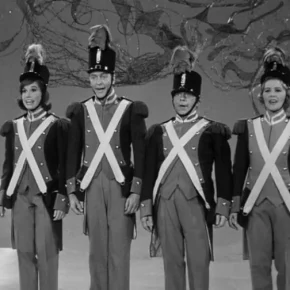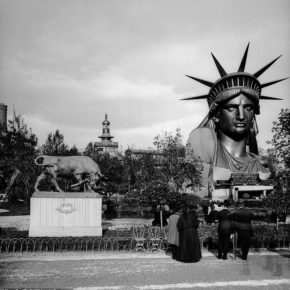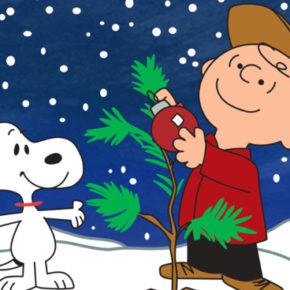I’m totally baffled by the tempest in a teapot that’s being stirred up by the media over the so-called “fiscal cliff.” Fueled mostly by conservative pundits and Tea Party sycophants, and aided by a complacent media, it seems that the average U.S. taxpayer should be in a state of panic.
The thing is: yes, taxes could go up and paychecks could end up smaller. But making smart and simple choices in life can make it all academic, in the end.
Really – it’s simply a matter of choices.
If no agreement can be reached before January 1, 2013, many taxes will roll back to the levels they were at under President Clinton. These rates are lower than they were under Reagan or Bush for a majority of taxpayers.
For example, a person earning $62,000 per year would see their income taxes increase approximately $1,900 in 2013 – an average of $36.56 per week. That’s not a ton of money, by-the-by, if you look at it, and it’s easy to save this amount by making discretionary – i.e. not necessary of basic, day-to-day existence – spending choices.
A big choice that many people make each working day is to buy a coffee or related beverage at Starbucks or a similar purveyor of high-end coffee drinks. Your average latte costs between $4 and $5. If this expense is completely skipped for a work week, that’s $20-25 saved. If you also get a donut, scone, or breakfast sandwich with this – let’s say it’s another $2-4 for this – that’s another $10 to $20 saved per week, and the $36.56 weekly tax expense is covered.
Even if you cut back one, two, or three of these discretionary beverages, that’s money saved and tax “hit” blunted. And, frankly speaking, with a little practice it’s possible to make a top-notch espresso, latte, or cup of coffee at home for a fraction of the cost of the coffee house.
The same rule applies for buying lunch from a local deli, bodega, restaurant or food truck: save $10 per lunch, and it adds up.
Post-work drinks? Buy a six-pack or bottle of wine and enjoy it at home, and invite your friends over. Remember: each single bottle of beer or glass of wine at a restaurant or bar typically covers the price of the entire six-pack (beer) or bottle (wine).
Yes, this can affect others in this supply chain system – namely the baristas, wait staff, bartenders, and shop owners. So combine bits and pieces: give up a coffee here, a beer there, lunch from the food truck elsewhere. Don’t completely abandon your local haunts – just cut back a little. They’ll understand. If you keep track of the money, the savings will add up.
And then there’s the discretionary expense that riles me more than most things: cable TV.
I understand: there is some great writing on cable TV. Some of the shows are really awesome.
But most cable packages have you paying for a lot of channels you’ll never watch, as well as channels that you can pick up for free with a simple antenna, over the air.
Yup: there is still such a thing as free TV, people! And most of it is full, 1080p or 1080i high definition!
For free! Over the air!
Do I practice what I preach? Yes, though I could do better. I brew my own coffee, both at home and at the office, though I do enjoy an occasional flat white from Filter, or a gingerbread latte from Starbucks. I eat out for lunch more than I should, though I try to stick to cheap, healthy stuff (no food trucks regularly serve my office’s neighborhood, anyway). I’ve never subscribed to cable. I do subscribe to Netflix.
I save additional money by riding my bike to work, something I’d do even if I lived further away from my workplace than I do now. That’s let money spent on gas, parking, and other car-related things.
These are all choices I make. I do them to save money and simplify things.
And with the looming “fiscal cliff,” I’m prepared.
Life is a series of choices, some of which are harder to make than others. Some of the choices I’ve made would be very tough for others to do for themselves, and that’s OK.
But challenges, like a tax increase, require an ability to think creatively and, occasionally, make choices that feel like sacrifices. But part of being a responsible adult is making the tough choices that aren’t necessarily the easiest or more pain-free – sometimes, choices will seemingly hurt.
But saving money here and there means that, down the road, there will be funds to spend on other things, whether practical (e.g. a new house or car) or fun (a vacation or concert). It also means having a rainy day fund in case of emergencies – not a bad thing to have.
Now this could all be an academic discussion if the various areas of the U.S. government can come to an agreement on avoiding this “cliff.” But so long as the Tea Party remains as inflexible as C. Montgomery Burns, and as long as Democrats remain similarly inflexible, it’s best to be prepared to make choices.













Comments by randomduck
virtual advent 2020: a fab holiday (and it’s been 40 years…)
@compassionknit: I think the issue is that John had Julian ...
ten on tuesday: the music died too young
Good call on those three!
my 30s: a look back
Thanks, Darren and Jeff! Jeff, riding along the California coast with ...